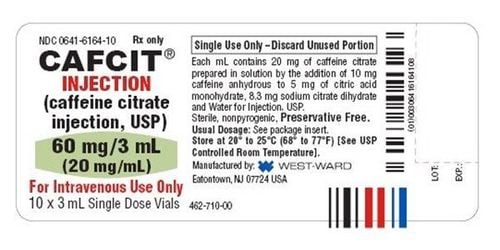This is an automatically translated article.
Vitamins and minerals play an important role in the intellectual and physical development of young children. If the child is not provided with the necessary amount of vitamins and minerals, the child may have growth retardation, weakened immune system compared to normal. Therefore, parents need to pay attention and pay attention to how to properly supplement vitamins for children.
1. Why need vitamin supplements for children?
In the daily diet for children, parents need to ensure that they provide enough essential groups of substances: protein, fat, starch, especially vitamins and minerals. When children get enough of the above nutrients, their health and comprehensive development take place stably, and also help prevent and prevent diseases, limit the attack of bacteria and viruses. effective.
Normally, children with normal health, breastfed and adequate food will not be deficient in vitamins. However, there are still some cases that cause children to be deficient in vitamins and minerals such as: poor diet, poor quality food, some diseases (such as prolonged diarrhea, malaria, liver disease) , malabsorption...), premature babies, twins...
If unfortunately young children fall into the case of vitamin and mineral deficiency as above, it is essential to find ways to supplement vitamins for children early. . However, the addition of these substances also needs to be cautious because they are prone to unwanted side effects.

Cha mẹ nên bổ sung vitamin tổng hợp cho bé đúng cách
2. Harm if not properly supplemented with vitamins for children
2.1. Effects of vitamin and mineral deficiency When the body lacks vitamins and minerals, children are often slow to grow up and are prone to some diseases such as:
Vitamin A deficiency: children are prone to eye diseases, respiratory and digestive tract infections. Vitamin B1 deficiency: easy swelling, heart failure, inflammation of the nerves Vitamin C deficiency: increases the risk of bleeding under the skin and mucous membranes, reduces the body's resistance to diseases (especially diseases infections) Vitamin K deficiency: easy to bleed (especially brain and meningeal hemorrhage) Vitamin D and calcium deficiency: prone to rickets, slow physical development... 2.2. Effects of excess vitamins and minerals On the contrary, if supplemented with too much vitamins and minerals also cause dangerous side effects for children:
Excess vitamin A: increases the risk of poisoning and increases intracranial pressure, leading to vomiting, headache, affecting bone development, neurological disorders in children. Vitamin A is not recommended for pregnant women in the first 3 months because of possible teratogenic effects; Excess vitamin B6: can cause polyneuritis, memory impairment, decreased prolactin secretion. Excess vitamin D: can cause children to lose appetite, fatigue, vomiting, thickening of the periosteum, in some cases retardation, delay. intellectual development, even kidney failure and rapid death. Excess vitamin K: mainly encountered with prolonged parenteral administration, it can cause hemolysis and jaundice in children.

Bổ sung vitamin cho trẻ cần tránh tình trạng thừa thiếu
3. How to properly supplement vitamins for children
Everyone understands the importance of vitamins and minerals for the holistic development of children. However, supplementing in excess or deficiency is not good for children, here are some suggestions for parents to properly supplement multivitamins for their children:
3.1. Supplementing vitamins just enough for children Many people mistakenly believe that the more vitamins they add, the healthier they will be. However, in fact, to avoid unwanted side effects, we should only supplement a sufficient amount according to the body's needs. Depending on age and health status, children will have different vitamin absorption needs, so parents should update and monitor their children's nutritional needs regularly.
In addition, the dose of vitamin supplements should always be lower than the daily requirement. In the market, single vitamin and mineral supplements often contain very high concentrations, for example: vitamin B12 of the 5,000-10,000mcg type (800-1,600% of the daily requirement); elemental zinc 100mg (330-660% higher than daily requirement), vitamin C 1,000mg; ... so unless the child has a disease due to a lack of those vitamins and minerals, it is necessary to use a high dose (and according to instructions of the doctor), the rest parents need to balance to avoid giving children too much.
3.2. Identify an effective source of vitamin supplements There are many sources of vitamins that help parents have more choices. In particular, vitamins are usually available in foods (vegetables, grains, meat, fish...) so they are recommended to be used to provide daily nutrition for children.
When choosing food, parents should remember to find out and choose to buy foods that are safe and do not contain preservatives. This not only helps children absorb nutrients effectively, but also ensures safety and health.
Besides, to make it easy for children to drink and absorb, parents can refer to some vitamin or vitamin supplements in liquid form (orally).
In general, vitamin supplements, although good, still cannot replace foods. Parents should still pay attention to nutrition in their children's diets, giving them adequate and balanced food groups. Hopefully this article has helped parents understand the importance and proper way to supplement vitamins for children, so that children will develop comprehensively physically and intellectually, ensuring stable health.
Please dial HOTLINE for more information or register for an appointment HERE. Download MyVinmec app to make appointments faster and to manage your bookings easily.













